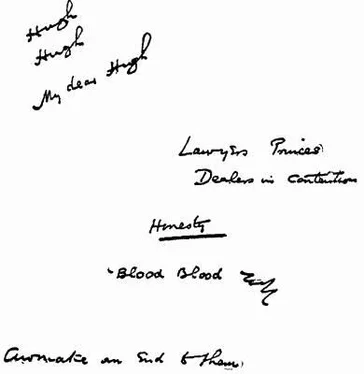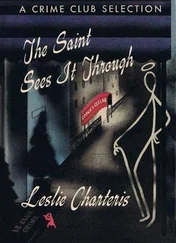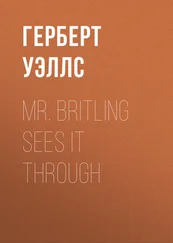Herbert Wells - Mr. Britling Sees It Through
Здесь есть возможность читать онлайн «Herbert Wells - Mr. Britling Sees It Through» весь текст электронной книги совершенно бесплатно (целиком полную версию без сокращений). В некоторых случаях можно слушать аудио, скачать через торрент в формате fb2 и присутствует краткое содержание. Жанр: Классическая проза, на английском языке. Описание произведения, (предисловие) а так же отзывы посетителей доступны на портале библиотеки ЛибКат.
- Название:Mr. Britling Sees It Through
- Автор:
- Жанр:
- Год:неизвестен
- ISBN:нет данных
- Рейтинг книги:4 / 5. Голосов: 1
-
Избранное:Добавить в избранное
- Отзывы:
-
Ваша оценка:
- 80
- 1
- 2
- 3
- 4
- 5
Mr. Britling Sees It Through: краткое содержание, описание и аннотация
Предлагаем к чтению аннотацию, описание, краткое содержание или предисловие (зависит от того, что написал сам автор книги «Mr. Britling Sees It Through»). Если вы не нашли необходимую информацию о книге — напишите в комментариях, мы постараемся отыскать её.
Mr. Britling Sees It Through — читать онлайн бесплатно полную книгу (весь текст) целиком
Ниже представлен текст книги, разбитый по страницам. Система сохранения места последней прочитанной страницы, позволяет с удобством читать онлайн бесплатно книгу «Mr. Britling Sees It Through», без необходимости каждый раз заново искать на чём Вы остановились. Поставьте закладку, и сможете в любой момент перейти на страницу, на которой закончили чтение.
Интервал:
Закладка:
Mr. Britling found the food panic disconcerting. It did not harmonise with his leading motif of the free people of the world rising against the intolerable burthen of militarism. It spoilt his picture....
Mrs. Britling shared the paper with Mr. Britling, they stood by the bed of begonias near the cedar tree and read, and the air was full of the cheerful activities of the lawn-mower that was being drawn by a carefully booted horse across the hockey field.
Presently Hugh came flitting out of the house to hear what had happened. "One can't work somehow, with all these big things going on," he apologised. He secured the Daily News while his father and mother read The Times . The voices of the younger boys came from the shade of the trees; they had brought all their toy soldiers out of doors, and were making entrenched camps in the garden.
"The financial situation is an extraordinary one," said Mr. Britling, concentrating his attention.... "All sorts of staggering things may happen. In a social and economic system that has grown just anyhow.... Never been planned.... In a world full of Mrs. Fabers...."
"Moratorium?" said Hugh over his Daily News . "In relation to debts and so on? Modern side you sent me to, Daddy. I live at hand to mouth in etymology. Mors and crematorium—do we burn our bills instead of paying them?"
"Moratorium," reflected Mr. Britling; "Moratorium. What nonsense you talk! It's something that delays, of course. Nothing to do with death. Just a temporary stoppage of payments.... Of course there's bound to be a tremendous change in values...."
§ 4
"There's bound to be a tremendous change in values."
On that text Mr. Britling's mind enlarged very rapidly. It produced a wonderful crop of possibilities before he got back to his study. He sat down to his desk, but he did not immediately take up his work. He had discovered something so revolutionary in his personal affairs that even the war issue remained for a time in suspense.
Tucked away in the back of Mr. Britling's consciousness was something that had not always been there, something warm and comforting that made life and his general thoughts about life much easier and pleasanter than they would otherwise have been, the sense of a neatly arranged investment list, a shrewdly and geographically distributed system of holdings in national loans, municipal investments, railway debentures, that had amounted altogether to rather over five-and-twenty thousand pounds; his and Mrs. Britling's, a joint accumulation. This was, so to speak, his economic viscera. It sustained him, and kept him going and comfortable. When all was well he did not feel its existence; he had merely a pleasant sense of general well-being. When here or there a security got a little disarranged he felt a vague discomfort. Now he became aware of grave disorders. It was as if he discovered he had been accidentally eating toadstools, and didn't quite know whether they weren't a highly poisonous sort. But an analogy may be carried too far....
At any rate, when Mr. Britling got back to his writing-desk he was much too disturbed to resume "And Now War Ends."
"There's bound to be a tremendous change in values!"
He had never felt quite so sure as most people about the stability of the modern financial system. He did not, he felt, understand the working of this moratorium, or the peculiar advantage of prolonging the bank holidays. It meant, he supposed, a stoppage of payment all round, and a cutting off of the supply of ready money. And Hickson the grocer, according to Mrs. Faber, was already looking askance at cheques.
Even if the bank did reopen Mr. Britling was aware that his current balance was low; at the utmost it amounted to twenty or thirty pounds. He had been expecting cheques from his English and American publishers, and the usual Times cheque. Suppose these payments were intercepted!
All these people might, so far as he could understand, stop payment under this moratorium! That hadn't at first occurred to him. But, of course, quite probably they might refuse to pay his account when it fell due.
And suppose The Times felt his peculiar vein of thoughtfulness unnecessary in these stirring days!
And then if the bank really did lock up his deposit account, and his securities became unsaleable!
Mr. Britling felt like an oyster that is invited to leave its shell....
He sat back from his desk contemplating these things. His imagination made a weak attempt to picture a world in which credit has vanished and money is of doubtful value. He supposed a large number of people would just go on buying and selling at or near the old prices by force of habit.
His mind and conscience made a valiant attempt to pick up "And Now War Ends" and go on with it, but before five minutes were out he was back at the thoughts of food panic and bankruptcy....
§ 5
The conflict of interests at Mr. Britling's desk became unendurable. He felt he must settle the personal question first. He wandered out upon the lawn and smoked cigarettes.
His first conception of a great convergent movement of the nations to make a world peace and an end to militant Germany was being obscured by this second, entirely incompatible, vision of a world confused and disorganised. Mrs. Fabers in great multitudes hoarding provisions, riotous crowds attacking shops, moratorium, shut banks and waiting queues. Was it possible for the whole system to break down through a shock to its confidence? Without any sense of incongruity the dignified pacification of the planet had given place in his mind to these more intimate possibilities. He heard a rustle behind him, and turned to face his wife.
"Do you think," she asked, "that there is any chance of a shortage of food?"
"If all the Mrs. Fabers in the world run and grab—"
"Then every one must grab. I haven't much in the way of stores in the house."
"H'm," said Mr. Britling, and reflected.... "I don't think we must buy stores now."
"But if we are short."
"It's the chances of war," said Mr. Britling.
He reflected. "Those who join a panic make a panic. After all, there is just as much food in the world as there was last month. And short of burning it the only way of getting rid of it is to eat it. And the harvests are good. Why begin a scramble at a groaning board?"
"But people are scrambling! It would be awkward—with the children and everything—if we ran short."
"We shan't. And anyhow, you mustn't begin hoarding, even if it means hardship."
"Yes. But you won't like it if suddenly there's no sugar for your tea."
Mr. Britling ignored this personal application.
"What is far more serious than a food shortage is the possibility of a money panic."
He paced the lawn with her and talked. He said that even now very few people realised the flimsiness of the credit system by which the modern world was sustained. It was a huge growth of confidence, due very largely to the uninquiring indolence of—everybody. It was sound so long as mankind did, on the whole, believe in it; give only a sufficient loss of faith and it might suffer any sort of collapse. It might vanish altogether—as the credit system vanished at the breaking up of Italy by the Goths—and leave us nothing but tangible things, real property, possession nine points of the law, and that sort of thing. Did she remember that last novel of Gissing's?—"Veranilda," it was called. It was a picture of the world when there was no wealth at all except what one could carry hidden or guarded about with one. That sort of thing came to the Roman Empire slowly, in the course of lifetimes, but nowadays we lived in a rapider world—with flimsier institutions. Nobody knew the strength or the weakness of credit; nobody knew whether even the present shock might not send it smashing down.... And then all the little life we had lived so far would roll away....
Читать дальшеИнтервал:
Закладка:
Похожие книги на «Mr. Britling Sees It Through»
Представляем Вашему вниманию похожие книги на «Mr. Britling Sees It Through» списком для выбора. Мы отобрали схожую по названию и смыслу литературу в надежде предоставить читателям больше вариантов отыскать новые, интересные, ещё непрочитанные произведения.
Обсуждение, отзывы о книге «Mr. Britling Sees It Through» и просто собственные мнения читателей. Оставьте ваши комментарии, напишите, что Вы думаете о произведении, его смысле или главных героях. Укажите что конкретно понравилось, а что нет, и почему Вы так считаете.






